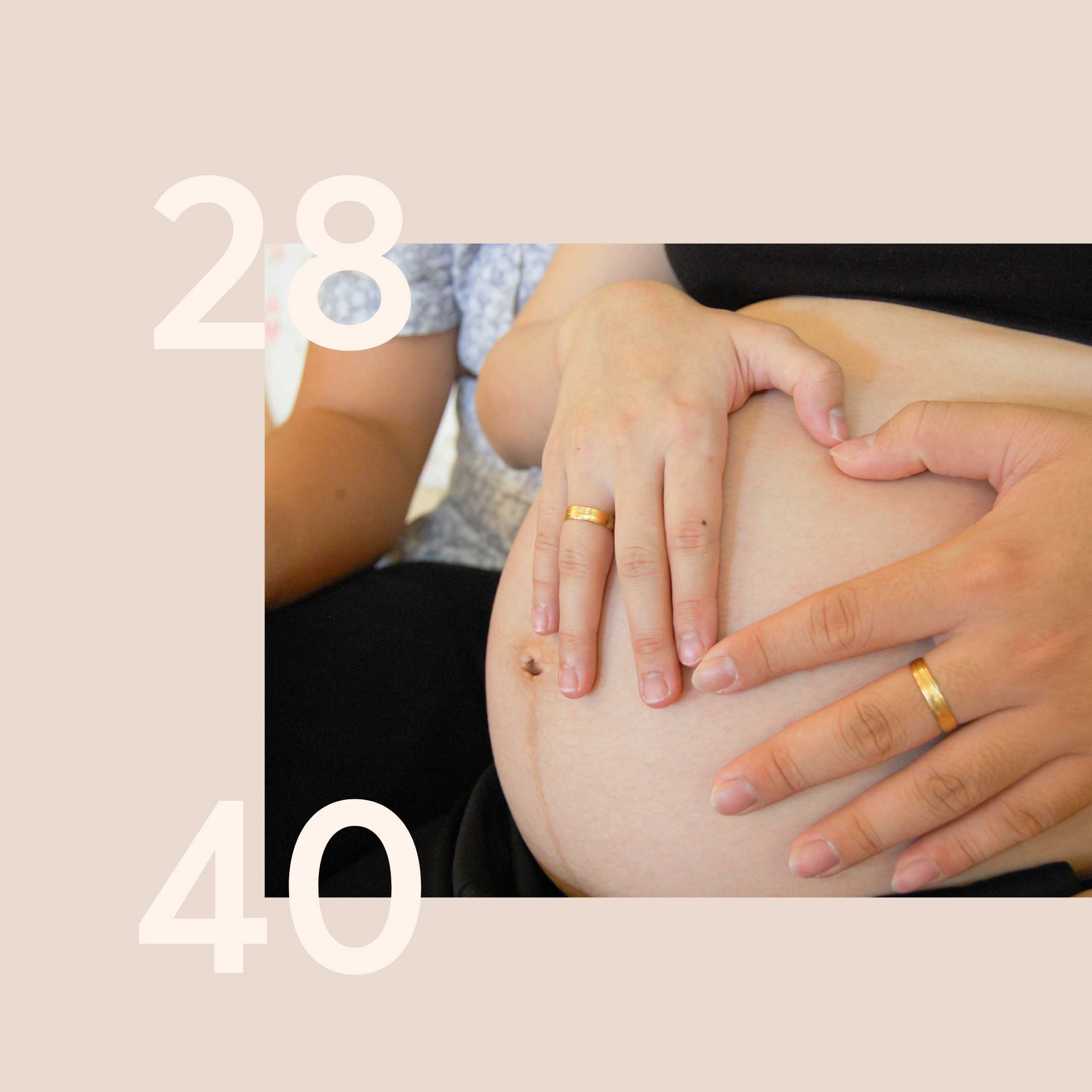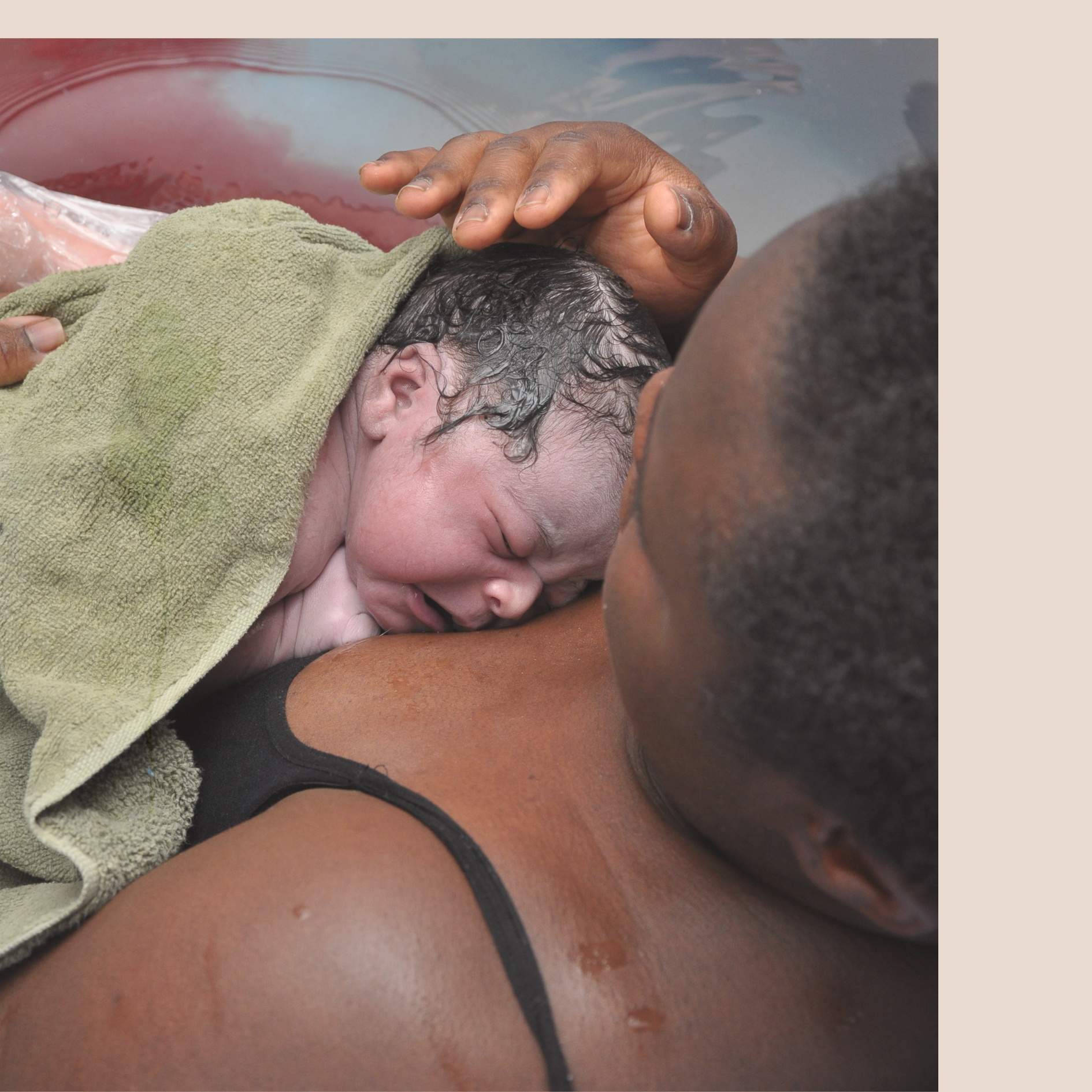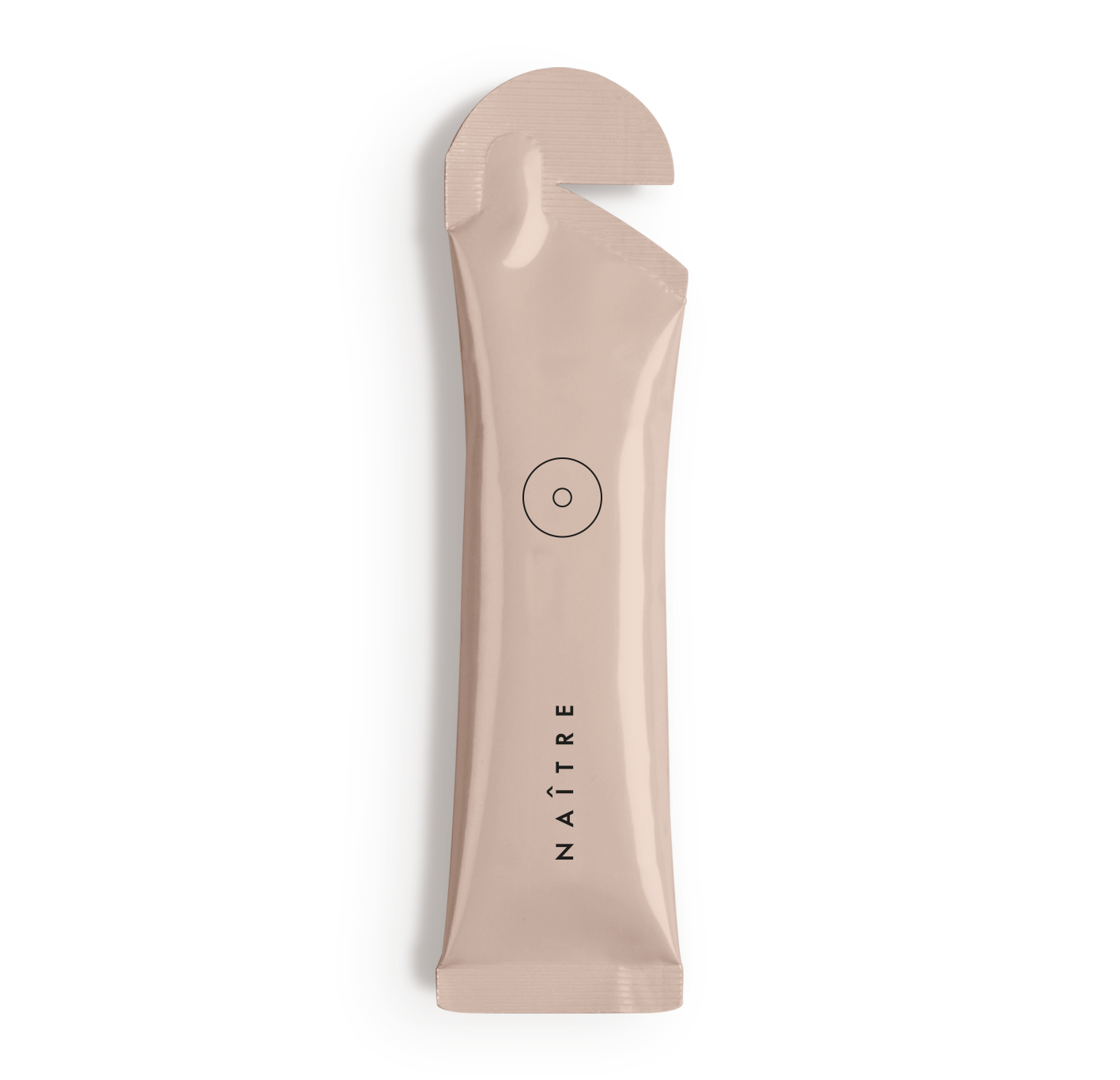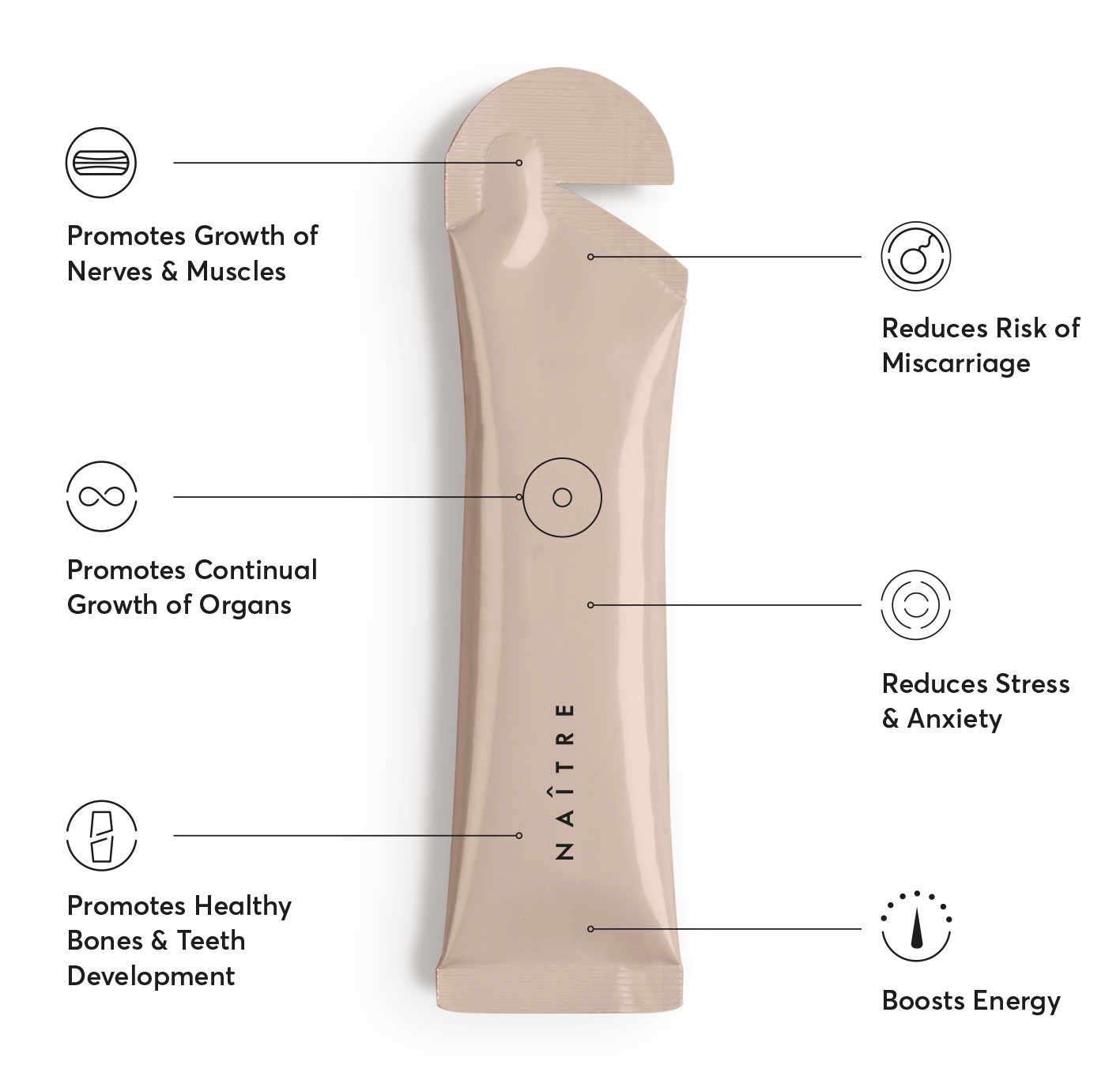
Wow, you're now in the final stretch of your pregnancy! The third trimester is an exciting and transformative time as you prepare to meet your little bundle of joy. Let’s go through the changes, considerations, and preparations for this crucial phase.
Physical Changes and Discomfort
- Growing Belly: Your belly will significantly expand, and you may notice stretch marks appearing on your skin. Embrace your changing body and celebrate the incredible journey it represents.
- Backaches and Pelvic Pain: As your baby's weight increases, you may experience backaches and pelvic pain. Practice good posture, use proper body mechanics when lifting, and consider prenatal exercises that can help alleviate discomfort.
- Shortness of Breath: As your uterus expands, it can put pressure on your diaphragm and lungs, leading to shortness of breath. Take breaks, sit or lie down in a comfortable position, and practice deep breathing exercises.
- Swelling and Fluid Retention: Edema, or swelling, is common during the third trimester, especially in the feet, ankles, and hands. Elevate your legs, wear comfortable shoes, and avoid standing or sitting for prolonged periods.
- Braxton Hicks Contractions: These practice contractions can become more frequent in the third trimester. Differentiate them from true labour contractions by their irregularity, mild intensity, and lack of progression. If you have concerns, consult your healthcare provider.
Nourishing Your Body: Essential Nutrients in the Third Trimester
- Magnesium: Supports muscle contractions during labour and helps maintain healthy blood pressure levels. Find it in green leafy vegetables, seeds, nuts, and dark chocolate.
- Iron: Vital for your baby's oxygen transportation and muscle development. Make sure to include green leafy vegetables, oats, spinach, organic red meat, and lentils in your diet.
- Vitamin K: Crucial for effective blood clotting during delivery. Avocado, broccoli, beans, cabbage, lettuce, cauliflower, spinach, watercress, nettle tea, and fermented foods are good sources.
- Omega-3: Promotes normal brain and eye development in your baby. Include sources like sardines, mackerel, anchovies, salmon, herring, trout, hemp, chia and flax seeds, and walnuts to maintain optimal levels.
- Protein: Supports baby's growth and helps stabilise blood sugar levels. Aim for 50g per day through chicken, fish, eggs, milk, beans, nut butter, yoghurt, and protein powder.
Benefits of Continuing with your Prenatal Vitmains
- Calcium: for building strong bones and teeth. The body absorbs double the amount of calcium during pregnancy in order to support maternal and foetal needs. Research suggests that close to 80% of foetal calcium stores are absorbed during the final trimester of pregnancy, when the baby’s bones are growing and becoming stronger.
- Vitamin K: This is the time to ensure you have good levels before birth as Vitamin K is a key player in effective blood clotting which is important during both vaginal and caesarean delivery.
- Iodine and folic acid: for central nervous system development
- Choline: supportive of baby’s brain development.
- Vitamin D and A (as Beta Carotene): for healthy skin and eyesight.
- Vitamin B12: As baby grows and expands, Vitamin B12 is incredibly supportive for your energy levels. Your baby also benefits from Vitamin B12 in this stage as their cognition develops.
- Magnesium: Sleep can become more challenging in this trimester and Magnesium during pregnancy is very helpful in reducing insomnia. It is also a helpful nutrient to reduce water retention.
Preparation for Labour and Delivery
As your due date approaches, it's essential to prepare for labour and delivery. Here are some key considerations:
- Childbirth Classes: Attend childbirth classes to gain knowledge and confidence about the labour process, breathing techniques, relaxation exercises, and partner support. These classes can help you feel prepared and informed.
- Hospital Bag: Pack your hospital bag with essentials for both you and your baby. Include comfortable clothing, toiletries, nursing bras, baby clothes, and important documents. Keep it ready in case of an early arrival.
- Baby's Position: Your healthcare provider will monitor your baby's position as you near your due date. If your baby is in a breech position, they may discuss options such as external cephalic version or a caesarean delivery.
- Prenatal Check-ups: Maintain regular prenatal check-ups to monitor your baby's growth, assess your health, and address any concerns or questions you may have. These appointments are crucial for ensuring a healthy pregnancy.
Self-Care and Emotional Well-being
In addition to physical preparations, prioritise self-care and emotional well-being during the third trimester:
- Rest and Sleep: Getting adequate rest and sleep becomes increasingly important as your body prepares for labour. Listen to your body's cues, take naps when needed, and create a comfortable sleep environment.
- Gentle Exercise: Engage in gentle exercises approved by your healthcare provider, such as prenatal yoga, walking, or swimming. These activities can help relieve stress, promote circulation, and prepare your body for labour.
- Lots of water: Good hydration offers you a myriad benefits in the Third Trimester such as healthy amniotic fluid levels, stable blood pressure, reduction in swelling, digestive issue ease, and prevention of urinary tract infections.
- Emotional Support: Seek emotional support from your partner, loved ones, or support groups. Share your feelings, fears, and excitement as you navigate the final stages of pregnancy. Talking to others who are going through or have been through a similar experience can be comforting.
- Nesting and Baby Preparation: Channel your energy into nesting activities, such as setting up the nursery, washing baby clothes, and organising essential items. This process can help you feel more prepared and emotionally connected to your baby.
- Bonding with Your Baby: Take moments to bond with your baby before birth. Talk to your baby, sing lullabies, and gently touch your belly. These interactions can strengthen the emotional bond between you and your little one.
- Relaxation Techniques: Explore relaxation techniques like meditation, deep breathing exercises, or prenatal massage. These practices can help you manage stress, promote relaxation, and create a sense of calm during the final weeks of pregnancy.
Preparing for Postnatal
While you eagerly await the arrival of your baby, it's important to consider preparations for the postnatal period:
- Postnatal Support: Arrange for postnatal support from family, friends, or hired professionals. Having assistance with household chores, cooking, and new-born care can alleviate some of the initial challenges of the postnatal period.
- Breastfeeding Education: If you plan to breastfeed, seek education and support from lactation consultants or breastfeeding classes. Understanding proper latching techniques, milk supply management, and common breastfeeding challenges can help you establish a successful breastfeeding relationship.
- Emotional Well-being: Be mindful of your emotional well-being after childbirth. The postnatal period can bring a range of emotions, including baby blues or postnatal depression. Seek help if you experience persistent sadness, anxiety, or difficulty bonding with your baby.
- Postnatal Care Kit: Prepare a postnatal care kit with essentials like maternity pads, comfortable underwear, nipple cream, and soothing herbal sitz bath ingredients. These items can provide comfort and support during the healing process.
- Baby Care Basics: Familiarise yourself with new-born care essentials, such as nappies, bathing, and soothing techniques. Taking a new-born care class or seeking guidance from experienced parents can boost your confidence in caring for your little one.






